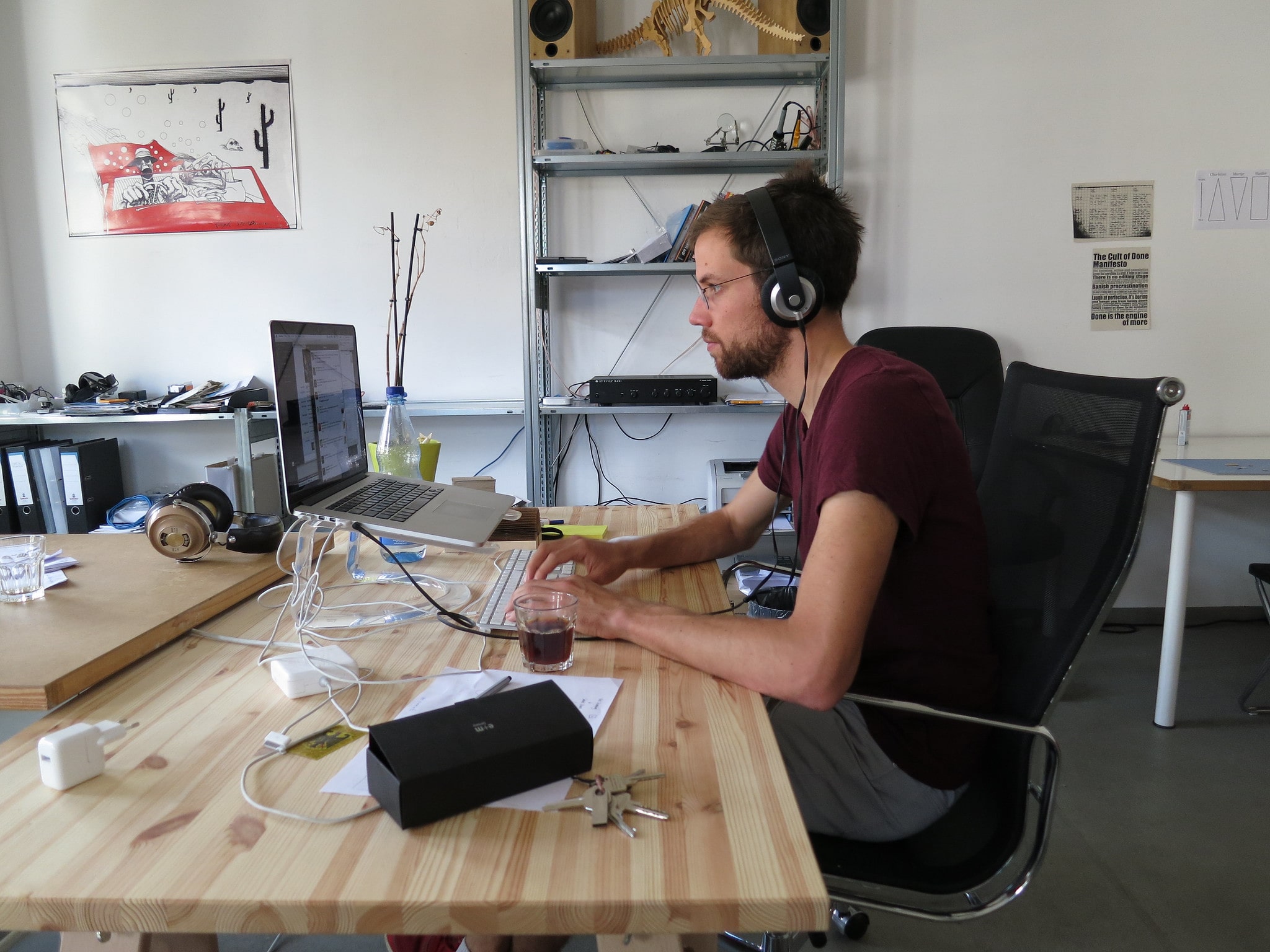The abundance of software engineers and developers in the world today has presented a challenge for those seeking the right developers for their projects. Hiring developers is no longer just about finding individuals with technical skills. For projects that require a nuanced understanding of sector-specific challenges, hiring developers with industry experience can be the difference between a project that merely functions and one that delivers effective solutions and essential features.
This is where industry-experienced engineers and developers come into play. To provide the right solution and develop the precise features needed, a developer must have firsthand knowledge and experience with the issues at hand—an insight that only seasoned project managers fully appreciate. This article explores why industry experience matters, the key qualities to look for, where to find the right talent, and tips on assessing experience during the hiring process.
Why Industry Experience Matters in Development
1. Alignment with Client and Stakeholder Expectations
You can deliver the right and precise solution to a problem only if you have experienced it firsthand. Whether it’s maintaining compliance, delivering user-friendly applications, knowing what data to include and not to include on every records, or prioritizing specific functionalities, industry-experienced developers provide insights that enhance project success and stakeholder satisfaction. When developers understand your industry, they are better equipped to meet the expectations of clients and stakeholders because they know and experience the pain firsthand.
2. Specialized Problem-Solving Abilities
Each industry has its own unique set of challenges, which often lead to the development of informal methods for addressing them—much like a standard operating procedure (SOP) but known only to field personnel. A developer familiar with your sector brings a repertoire of solutions for common challenges and a deep understanding of what works best. Their ability to propose effective and innovative solutions stems from their familiarity with the specific issues your industry faces, making their work both relevant and impactful.
3. Faster Adaptation to Your Business Needs
Developers who have worked in your industry before understand its key terminology, workflows, and common challenges. For example:
Automotive Industry
A developer with automotive industry experience knows the pain points of both customers and business operators, such as the importance of repair time for a vehicle in service, the need for transparency to build trust with clients by knowing what information to emphasize during client interaction, and the workflow of vehicle repair—from receiving the customer at the front end, managing work orders on the administrative side, to performing the hands-on work in the workshop.
Manufacturing Industry
A developer with manufacturing experience understands which metrics to prioritize, the product quality parameters that must be met, and how to effectively present this information to stakeholders. For example: What is the status of the production target? How will downtime affect the target? What is the current value of the warehouse inventory? They are also familiar with maintenance issues impacting production output and know how to manage work orders to meet the documentation requirements essential for implementing a robust maintenance program.
Construction Industry
A developer with construction experience understands the impact of stakeholder misalignment on agreed timelines, the logistics required to deliver materials and services, and the safety risks that need to be addressed to meet deadlines.
This prior exposure enables them to adapt faster, reducing the learning curve and allowing them to contribute effectively from the outset, thereby freeing up significant bandwidth in the project management aspect of software development.

Key Skills and Qualities to Look For
When hiring developers with industry experience, it’s essential to look beyond technical skills and assess their fit within the industry context.
1. Proficiency with Industry-Specific Tools
In many industries, specialized software and tools are essential, and proficiency with these tools can significantly enhance a developer’s ability to create solutions that integrate seamlessly into existing workflows.
A developer experienced in manufacturing, for instance, may already be familiar with tools for inventory management, production scheduling, or CAD software. This knowledge means they can better understand these tools’ APIs, data formats, and underlying logic—enabling them to build software that integrates smoothly, minimizes data inconsistencies, and preserves the integrity of existing records.

Contingency & Retained Recruitment Service
Transparent and Competitive Pricing


Contact us today or fill out the form to get started with fast, reliable, and quality-driven hiring solutions.
2. Understanding of Compliance and Standards
The automotive industry operates under specific standards and compliance requirements, especially in areas such as safety, emissions, and data security for connected vehicles. Developers with domain knowledge in the automotive sector are better equipped to create solutions that not only meet these regulatory requirements but also address unique industry challenges.
For example, they understand the critical importance of features that enhance vehicle safety, manage emissions compliance, or ensure data security in telematics systems. This specialized knowledge enables developers to craft tailored solutions, such as automated diagnostics tools or real-time vehicle status updates, that genuinely address industry-specific problems and meet compliance standards.
By understanding the regulatory landscape and operational standards, automotive-savvy developers can build features that not only function effectively but also enhance safety and reliability, making them a valuable asset to any automotive project.
Where to Find Industry-Experienced Developers
Finding developers with the right blend of technical and industry knowledge requires looking in the right places. Here are some effective options:
1. Specialized Recruitment Agencies
Many recruitment agencies specialize in particular industries and have connections with developers who meet specific criteria. Partnering with a recruitment firm with expertise in your field can save time and help you access a pool of pre-screened candidates.
At ConfigEdge Solutions, we take this a step further. Built by industry experts, our agency ensures that the talents we work with possess industry-specific knowledge, thanks to our carefully crafted hiring and interview process. Beyond providing talent, ConfigEdge also offers comprehensive software and web development services, covering both web and mobile applications.
Our dual focus on talent and development solutions ensures clients have access to experts capable of handling every stage of their project with industry precision.
2. Professional Networking Sites (LinkedIn)
LinkedIn is an invaluable tool for finding professionals with specific industry experience. Use advanced filters to search for developers who have worked in your industry, and join LinkedIn groups related to your field to connect with potential candidates.
3. Industry Events and Conferences
Events, webinars, and conferences related to your industry are excellent places to meet developers with relevant experience. These gatherings also give you a chance to see firsthand how a developer engages with others and stays informed about industry trends.

How to Assess Industry Experience During the Hiring Process
Identifying a developer with genuine industry experience goes beyond simply reading their resume. Here are practical steps to ensure a thorough assessment:
1. Create Technical Challenges Related to Your Industry
Set up coding tasks that mimic real-world challenges in your industry. For instance, if you’re hiring for a healthcare app, create a test that involves handling sensitive data securely. Such exercises can help determine if candidates possess both the technical skills and the industry understanding required for your project.
2. Review Portfolios and Case Studies
A portfolio showcasing projects in your industry can provide concrete examples of a developer’s relevant experience and impact. Look for projects similar to your own in scope and requirements, and assess how the developer’s past work could translate into value for your business.
3. Perform Reference Checks with Industry-Specific Focus
When contacting previous employers, ask about the developer’s industry knowledge and effectiveness on relevant projects. Confirming their contributions and understanding of industry-specific challenges from a third party can provide a valuable perspective on their experience.
Conclusion
Hiring developers with industry experience can transform a project, ensuring that the solutions are not only functional but truly aligned with industry standards, stakeholder expectations, and compliance requirements. Developers who understand your sector bring an invaluable mix of technical proficiency and real-world insight, helping you navigate complex challenges, accelerate project timelines, and deliver results that resonate with your audience.
At ConfigEdge Solutions, we’re committed to connecting you with developers who have the precise industry knowledge needed to enhance your project’s success. Our recruitment process is designed by industry experts who understand what it takes to excel in specialized fields, ensuring that each developer we provide is equipped with the right blend of skills and domain expertise. Additionally, we offer a range of development services, from web and mobile applications to custom software solutions, empowering your business to tackle any technical challenge. Let us partner with you to bring industry-aligned, innovative solutions to your next project, setting you on the path to long-term success.



 using WordPress and
using WordPress and
No responses yet